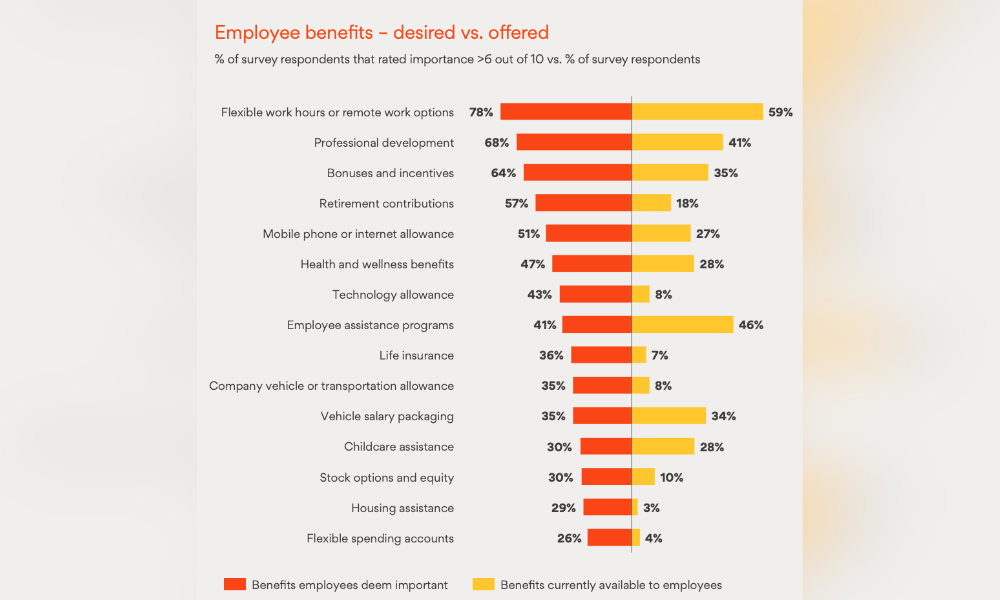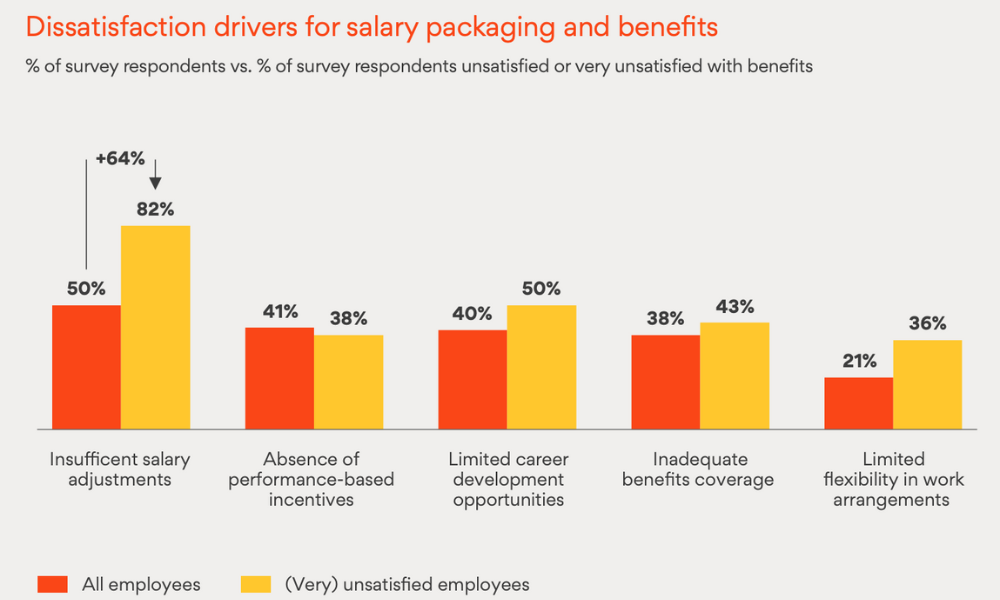
New report sheds light on importance of benefit packages

Many in-demand benefits in Australia remain "under-offered" by employers, according to a new report, which highlights the importance of benefit packages for today's workforce.
The report, by Deloitte and Origin 360 EV, reveals that 68% of employees in Australia are very satisfied with the benefits offered to them.
"Still, almost all benefits are under-offered relative to their importance for employees.”
Flexible work hours or remote work options is deemed as one of the most desired benefits by employees, with 78% rating it as important. However, only 59% of employers are revealed to be offering it, according to the report.
If you're looking for a tool that helps manage global hiring and compliance in hybrid work arrangements, read this Remote Review.
More than six in 10 employees also considered professional development (68%), as well as bonus and incentives (64%) as important, but only less than half of employees offer them.
A glaring was also discovered in retirement contributions, a benefit desired by 57% of employees but offered by only 18% of employers.

Source: Employee Insights Report 2024
"There is an opportunity for organisation to fill gaps across their benefits offerings, particularly by providing more of the highly desirable benefits and benefits that are significantly under-offered," the report reads.
Meanwhile, the report also reveals that factors driving benefits dissatisfaction in the workforce involve financial compensation.
Top dissatisfaction drivers among all respondents include insufficient salary adjustments and absence of performance-based incentives, according to the report.
But this is even more prominent for employees who feel very unsatisfied at work.
A total of 82% of unsatisfied employees cited insufficient salary adjustments as a top driver for dissatisfaction, while 43% cited inadequate benefits coverage.

Source: Employee Insights Report 2024
The report attributed the stronger demand for financial compensation to rising inflation, as employees expect regular salary increases to keep up with the cost of living.
"Where possible, organisations could consider greater salary increases and consider performance-based incentives to retain and motivate high-performing talent," the report reads.
Find out more about the importance of benefit packages and what other factors drive talent attraction in this new white paper.